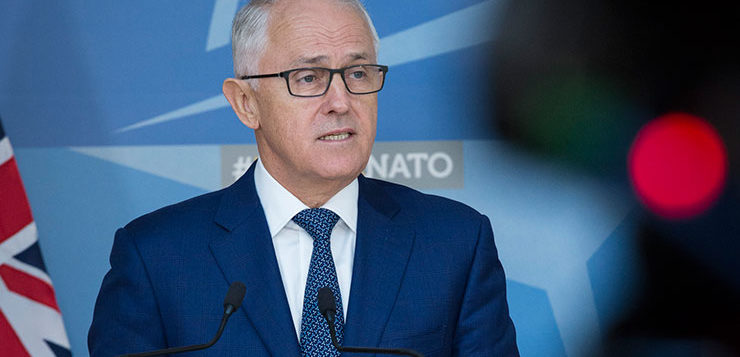The Turnbull government’s tax cuts are a recipe for a less fair, less equal and less democratic nation, writes Ben Eltham.
Quietly, and with little fanfare, federal politics has moved into a decisive phase in recent weeks.
The reason? Malcolm Turnbull’s government now has a de facto majority in the Senate. That has enabled it to pass some vital bills – bills that will change the face of Australia.
After years of going nowhere in the Senate, the stars have suddenly aligned for the Coalition. With the various section 44 departures, the replacement of a swathe of minor party senators has led to a very different Senate cross-bench. The kaleidoscopic rearrangement, tracked here by the Guardian’s Nick Evershed, has produced a significantly more pro-government Senate.
The Coalition has seized the opportunity, working the numbers to pass a raft of government legislation. The government has attempted to use the numbers to secure a deal to pass its long-stymied changes to student loans, reducing the threshold at which students must pay back debt. That deal didn’t quite come off.
But the most important bill was passed by the Senate the previous week: the Turnbull government’s massive income tax cuts.
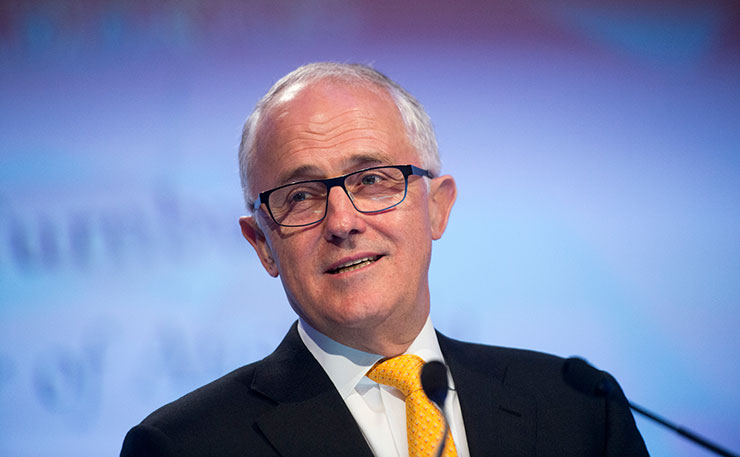
The media commentariat has largely moved on from the tax cuts, newly fascinated by the latest 72 hour controversy (currently, it’s the misogyny of David Leyonhjelm). That’s unfortunate, because the income tax cuts are one of the most significant policies to come before the federal Parliament in a decade. By passing the massive income tax cut, the Turnbull government has rammed through a policy with profound implications for the future of Australian society.
Before this decision, Australia had a highly progressive personal tax system: higher income earners paid a higher rate of tax than low income earners.
For all its faults and rigidities, our progressive tax system has been broadly effective in keeping a lid on the kind of galloping inequality that we’ve seen take off in the United States, Britain and South America.
Australia’s income inequality has been inching up in recent decades, but our tax and transfer system has done a reasonable job of protecting the incomes of those at the bottom.
The reason? The rate of tax a taxpayer pays is important. A progressive tax system means a rise in the tax rate for those earning more. That in turn ensures that high income earners have more of their wealth taxed and returned to the government, where it then becomes available for schools, roads, hospitals and pensions.
That’s all about to change. The new tax system that these tax cuts usher in will be radically flatter. It will be less progressive, and much less fair. By the time the full tax cuts flow through in 2024, the very rich in Australia will pay far less income tax that they do now.
Make no mistake: this is a triumph for the Turnbull government, and particularly for senior Senate frontbenchers Mathias Cormann and Simon Birmingham, who corralled a disorganized Senate cross-bench to secure the necessary votes, including from Pauline Hanson.
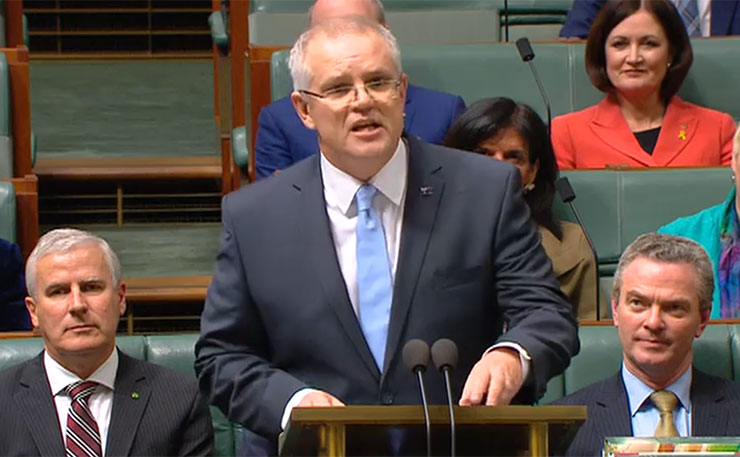
Treasurer Scott Morrison crowed. He gleefully announced that “this is a win for working Australians who want to get ahead.”
“They will have the certainty that when they earn more, when they get a pay rise or work more hours, they won’t face ever-increasing tax rates,” Morrison argued, inadvertently demonstrating the biggest flaw of the tax changes: the radical flattening of Australia’s income scales.
Turnbull’s tax triumph is a disaster for Australian inequality. By the time the full tax cuts are implemented, someone earning $200,000 a year will pay the same rate of tax as someone earning $41,000. A staggering $144 billion dollars of revenue will be foregone, the vast majority of the benefit accruing to the wealthiest in our society. That’s one to remember the next time you hear someone calling Pauline Hanson a champion of the battlers.
The massive tax cuts will have two effects. Firstly, they really will mean that the rich get richer. Secondly, they will blow a massive hole in the federal budget.
For the wealthy, the benefits for the top end of town are substantial. Wealthy Australians already live in a completely different reality from the median wage earner: they know little of the daily struggle of paying bills and making ends meet. Of course, it’s true that middle-income earners will see some tax relief. But those earning more than $120,000 are precisely the ones who will benefit most from these changes.
Independent modelling after the May budget from the respected National Centre for Social and Economic Modelling found that “individuals with high incomes will benefit the most once the tax reform is fully implemented”.
The extra dollars for the wealthy are really quite substantial. The NATSEM modelling found “a couple both earning twice the average full-time salary can expect an extra $13,000 in 2024-25”. That’s a massive windfall for those who don’t really need it.
This is a huge bonus for the Liberal base in Australia’s upper and upper-middle classes. In contrast, pensioners and the unemployed will get nothing: because the package is a raft of tax cuts, those on very low incomes are already below the tax free threshold. They will therefore get no benefit at all.
The second major consequence of the great tax flattening is for the budget. The tax cuts will permanently subtract tens of billions a year from tax revenue – all at a time when Australia remains in budget deficit. That’s revenue that can’t pay for social spending, for infrastructure, for defence, or for any of the other essential things the federal government funds.
It’s a telling measure of the economic innumeracy of much of the Australian media that the tax cuts have largely slid through with very little commentary about the deficit. The notion that a Liberal government running a multi-billion dollar deficit could sign off on a $144 billion tax cut should put paid to the lazy assumption that conservatives are better budget managers, once and for all.
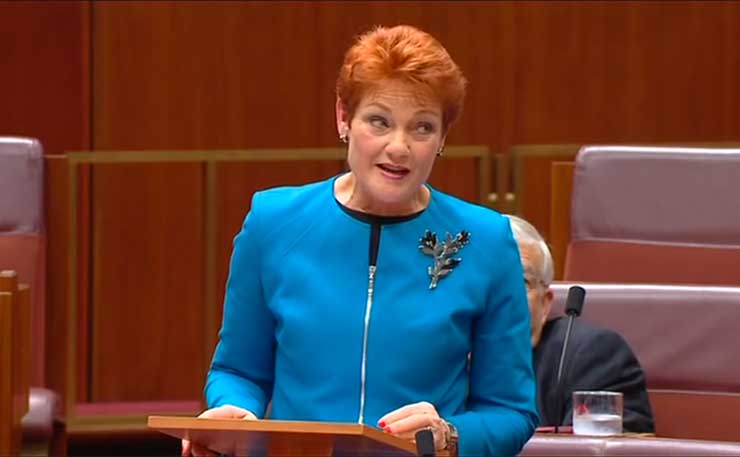
No-one else seems to be able to say it, so let’s spell it out: this is bad fiscal management. Wealthy Australians don’t need a tax cut, and with the economy improving and employment growing, there’s no economic justification for giving it to them.
Australia’s economy is doing well. Fiscal conservatives – which the government still claims that it is – would normally argue that this stage in the economic cycle should be the time to build up healthy surpluses for the inevitable rainy day. With strong employment growth in the past year, orthodox macroeconomics would suggest that now is not the time to shower rich people with tax cuts.
But lower revenue is all part of the Coalition’s plan. The Turnbull government wants to give away all this money – not just to reward high-income earners in its political base, but in order to permanently reduce the federal tax base. In contrast to the full-frontal assault on spending that proved so unpopular for Tony Abbott and Joe Hockey in 2014, this time the Coalition is locking in the spending cuts in future years. But the squeeze on federal spending will be just as real.
Lower taxes mean smaller government, which means less social spending on the things that conservatives loathe, like public broadcasters and the unemployed. If we combine the two effects, we can see that the passing of the tax package is a profound attack on Australian social democracy, and the doctrine of fairness that many voters still believe in.
The immediate prospects for unwinding the tax cuts are bleak. Labor has displayed some genuine backbone by standing up against the worst aspects of the tax flattening, and indeed the forthcoming federal election now presents a real contrast between a Coalition that stands ever more nakedly for wealth and power, and a Labor Party that has rediscovered its belief in redistribution and a fair go for all.
But even if Labour wins the next federal election, it will still need to repeal any changes in the Senate, which an incoming ALP government is unlikely to control. A Shorten government will also find raising taxes politically difficult, particularly when it means raising taxes on the upper-middle classes who make up the bulk of affluent professionals and the media commentariat.
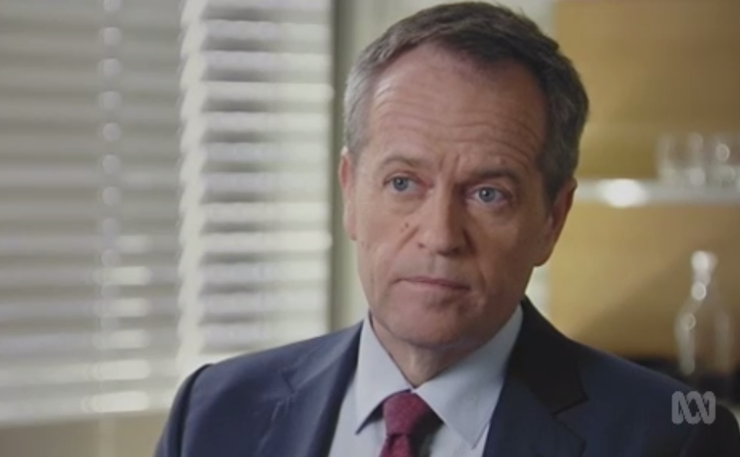
Shorten’s ‘on-again, off-again’ threats last week to wind back company tax cuts for medium-sized businesses show how difficult it will be for Labor to raise taxes, with the right wing of the party perennially afraid of being on the wrong side of populist small-government arguments.
Ordinary citizens are often jaded with politics, and after viewing the mendacity and mediocrity of David Leyonhjelm this week, who could blame them? But many of the things that governments do are important. Taxing rich people is one of them, because we need to raise taxes to pay for a fairer society.
For this reason, last month’s tax cuts are really important. The passage of these income tax cuts was a bad day for Australian society. It represents the most significant milestone of Turnbull’s government – a road sign on the way to a less fair, less equal and less democratic nation.
The radical tax flattening is aimed at reducing the size of the federal government. It will change Australia, in ways that harm the most vulnerable, and benefit the well off. The cuts will see the wealthiest shooting even further into their luxurious lifestyle of million-dollar houses and conspicuous consumption, while those on low incomes or welfare continue to struggle with day to day existence.
Donate To New Matilda
New Matilda is a small, independent media outlet. We survive through reader contributions, and never losing a lawsuit. If you got something from this article, giving something back helps us to continue speaking truth to power. Every little bit counts.

